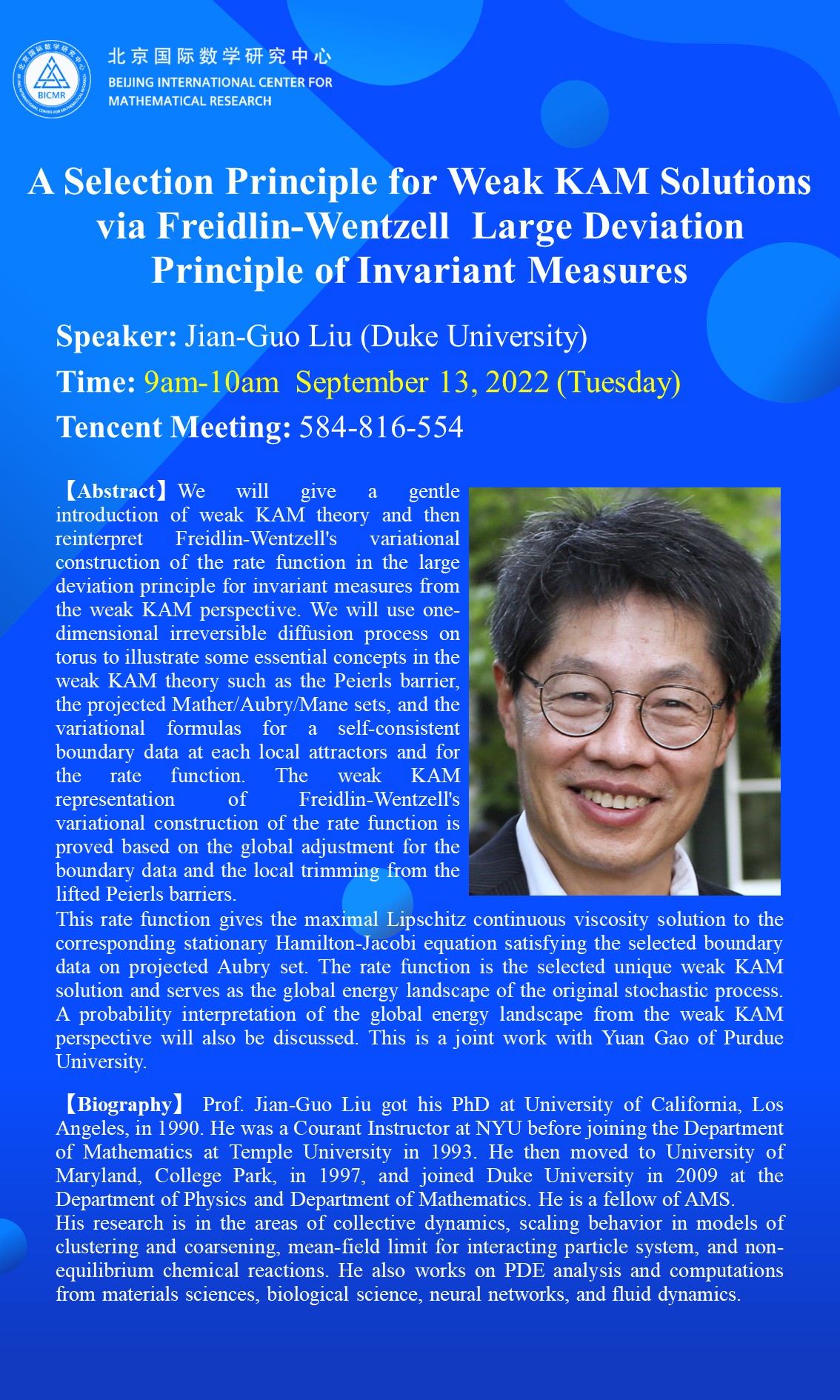A Selection Principle for Weak KAM Solutions via Freidlin-Wentzell Large Deviation Principle of Invariant Measures
发布时间:2022年09月07日
浏览次数:5329
发布者: Wenqiong Li
主讲人: 刘建国(杜克大学)
活动时间: 从 2022-09-13 09:00 到 10:00
场地: 线上
Abstract: We will give a gentle introduction of weak KAM theory and then reinterpret Freidlin-Wentzell's variational construction of the rate function in the large deviation principle for invariant measures from the weak KAM perspective. We will use one-dimensional irreversible diffusion process on torus to illustrate some essential concepts in the weak KAM theory such as the Peierls barrier, the projected Mather/Aubry/Mane sets, and the variational formulas for a self-consistent boundary data at each local attractors and for the rate function. The weak KAM representation of Freidlin-Wentzell's variational construction of the rate function is proved based on the global adjustment for the boundary data and the local trimming from the lifted Peierls barriers.
This rate function gives the maximal Lipschitz continuous viscosity solution to the corresponding stationary Hamilton-Jacobi equation satisfying the selected boundary data on projected Aubry set. The rate function is the selected unique weak KAM solution and serves as the global energy landscape of the original stochastic process. A probability interpretation of the global energy landscape from the weak KAM perspective will also be discussed. This is a joint work with Yuan Gao of Purdue University.
Speaker: Prof. Jian-Guo Liu got his PhD at University of California, Los Angeles, in 1990. He was a Courant Instructor at NYU before joining the Department of Mathematics at Temple University in 1993. He then moved to University of Maryland, College Park, in 1997, and joined Duke University in 2009 at the Department of Physics and Department of Mathematics. He is a fellow of AMS.
His research is in the areas of collective dynamics, scaling behavior in models of clustering and coarsening, mean-field limit for interacting particle system, and non-equilibrium chemical reactions. He also works on PDE analysis and computations from materials sciences, biological science, neural networks, and fluid dynamics.
Tencent Meeting: 584-816-554



